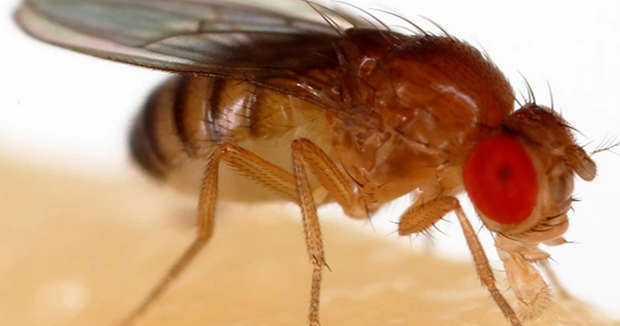On July 28, Cambridge University (UK) announced that scientists at this school have successfully modified the genes of female fruit flies, allowing this species to give birth without mating.
 |
| Illustration photo Source: AFP |
Parthenogenesis, also known as parthenogenesis, is a form of parthenogenesis in which eggs develop into new individuals without fertilization.
This phenomenon is quite common in organisms such as plants, insects, fish, reptiles and even birds, except for mammals - which need certain genes in sperm to reproduce.
In a research report published in the journal Current Biology on July 28, Cambridge University (UK) said that scientists from this school and their American colleagues have successfully modified the genes of female fruit flies, so that this species can give birth without needing male fruit flies.
Remarkably, this ability to reproduce can be passed down through generations. Specifically, fruit flies born in this way can also give birth without mating.
“For the first time, scientists have succeeded in inducing parthenogenesis in an animal that normally reproduces sexually: the fruit fly Drosophila melanogaster,” the report states.
According to Ms. Alexis Sperling - the lead author of the above study, she wanted to study virgin birth since the mantis she raised gave birth in this way.
To investigate the genetic factors of the ability to give birth, she and several researchers in the US decided to experiment on Drosophila melanogaster fruit flies - one of the animals commonly used in genetic studies.
The team first sequenced the genomes of two other strains of Drosophila mercatorum, one of which reproduces exclusively through parthenogenesis, while the other requires males for fertilization.
They then compared the results to determine exactly which genes were present in the flies that were born by parthenogenesis. Next, the scientists compared them to genes in the fruit fly Drosophila melanogaster to determine the matching factors.
The study, which took place over six years and involved 220,000 fruit flies, found that the genetically modified flies were still able to reproduce sexually if they were exposed to males. However, in environments without males, 1-2% of the genetically modified female flies would undergo parthenogenesis, and their offspring would be 100% female.
Commenting on this new scientific advance, Herman Wijnen, a researcher at the University of Southampton (UK), said: "This is an interesting study because it shows how parthenogenesis can evolve in a sexually reproducing species and this can be considered a backup strategy for female animals that cannot find a mate."
Last month, a female crocodile at a zoo in Costa Rica laid an egg containing a fully formed fetus, the first recorded case of parthenogenesis in the reptile species.
( According to https://www.vietnamplus.vn/bien-doi-gene-thanh-cong-de-tao-ra-ruoi-giam-co-kha-nang-trinh-san/886047.vnp )
.
Source link




















































![[Maritime News] More than 80% of global container shipping capacity is in the hands of MSC and major shipping alliances](https://vphoto.vietnam.vn/thumb/402x226/vietnam/resource/IMAGE/2025/7/16/6b4d586c984b4cbf8c5680352b9eaeb0)













































Comment (0)